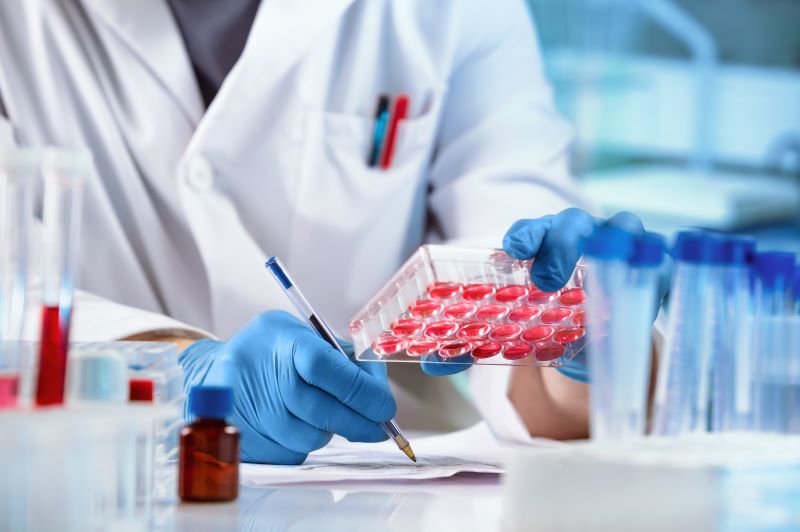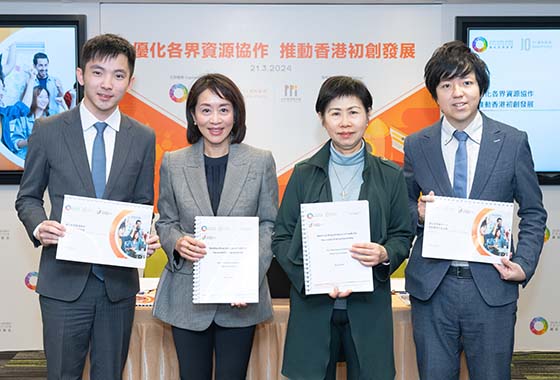How Hong Kong can build on its strengths to become a global biotech data hub
This article appeared originally in the South China Morning Post on 15 September, 2022.
Authors: Kenny Shui, Research Director and Head of Economic Development Research, and Arthur Tsang, Assistant Researcher at Our Hong Kong Foundation.

Following the Hong Kong stock exchange’s annual biotech summit on September 1, it is a good time to review the city’s biotech development.
The good news is that Hong Kong remains the world’s second-largest fundraising hub for biotechnology. Based on Our Hong Kong Foundation data, Hong Kong has 51 listings for pre-revenue biotech companies, with 11 new joiners since last October. Concurrently, 46 mature biotech companies have gone public, with nine additions in the past year.
Yet, our records suggest that no more than two of the listed pre-revenue biotech companies and only one of the mature ones have research bases in Hong Kong. Unsurprisingly, most are set up in Shanghai, Beijing, Suzhou or Hangzhou.
This mismatch in the development of the city’s capital market and its innovation and technology (I&T) sector needs addressing if Hong Kong is to transition from finance centre to biotech innovation hub.
Hong Kong’s universities are renowned for their medical and clinical research. They can be a driving force for academic-industry collaboration and technology transfer. Meanwhile, Hong Kong’s potential as a global data hub makes it equally appealing for companies to settle here and start-ups to grow.
It is the combination of Hong Kong’s research credentials and rich pool of genetic data, collected both locally and from the mainland, which gives the city its advantage in the field of biotechnology.
Many global pharmaceutical companies conduct clinical trials in Hong Kong, and the data procured is frequently recognised by drug regulatory bodies worldwide, including the US Food and Drug Administration, the European Medicines Agency and China’s National Medical Products Administration. But Hong Kong can do more to strengthen its data infrastructure. For this, public-private collaboration will be needed.
Over the next few years, Hong Kong plans to collect genetic data from 20,000 residents to better understand the city’s health. Unfortunately, compared to Singapore’s planned genome database of 100,000 Singaporeans, Hong Kong’s project is still in infancy.
The Hospital Authority has also established a platform where universities can access clinical data for use in research, yet measures are still under way for private companies to access such data. This process needs to be accelerated.
In addition, more cross-sector partnerships are needed to speed up and scale up Hong Kong’s genome project; there is no shortage of genetic sequencing companies in town. Singapore’s Genome Institute is working with Illumina, an American genetic sequencing company, to achieve the 100,000 goal.
In Hong Kong, leading biotech company Roche recently collaborated with the University of Hong Kong and the Hospital Authority to conduct whole-genome sequencing on lung cancer patients to develop therapeutic solutions. We need more collaborations like this.
As with other industries, Hong Kong can also take advantage of its mainland ties to build a biotech hub. The China National GeneBank in Shenzhen is the largest of its kind in the world, partly funded by the government and overseen by the genetic sequencing company BGI.
Although this model could hardly be replicated in Hong Kong, this rich genetic resource can complement the Hospital Authority’s data and propel Hong Kong’s biotech development.
Currently, cross-border outflow of genetic and clinical data is strictly regulated on the mainland, but if a facility can be established near the border granting access to Hong Kong’s world-class researchers, all parties could benefit.
This type of government-to-government initiative should of course be accompanied by strict measures on data storage and access, and computing infrastructure. The National Administration of Human Genetic Resources should also establish a branch in the Lok Ma Chau Loop to oversee access approval.
Meanwhile, the Covid-19 pandemic has given Hong Kong’s drive to improve its data infrastructure a huge push. In 2021, two vaccines were authorised for emergency use in the city. The “real-world data” generated by applying these products to huge numbers of human subjects is an important resource for monitoring safety and efficacy and even for discovering new biomarkers – ways of measuring a person’s biological condition.
This real-world data gathered from Hong Kong-registered products can be further used to fulfil clinical data requirements for product registration on the mainland. This can be done through the Greater Bay Area “medicine link”, which allows some Hong Kong-registered drugs and devices to be used in some mainland hospitals.
Similarly, at the start of the pandemic in 2020, the Hong Kong government allowed a start-up that produces testing kits to trial the technology at emergency outbreak testing centres. It was through the sharing of clinical data that a cross-evaluation of government-held PCR results and the start-up’s RAT results was made available.
The pandemic has driven paradigm changes not only in the government but also corporations. Pharmaceutical companies have begun to open and share their resources for biotech development. For instance, Insilico Medicine, a Hong Kong-based unicorn focusing on AI drug discovery, has partially opened its drug compound database to global pharmaceutical companies.
From now on, riding on the popular use of data-generating wearables, the rise of surgical data science, and the industry popularisation of other resources such as pharmaceutical data, Hong Kong should quickly catch up in building conventional data infrastructure to fuel its biotech development.
It is through establishing itself as a global biotechnology data hub that Hong Kong can become not only a centre for finance but also for innovation.



